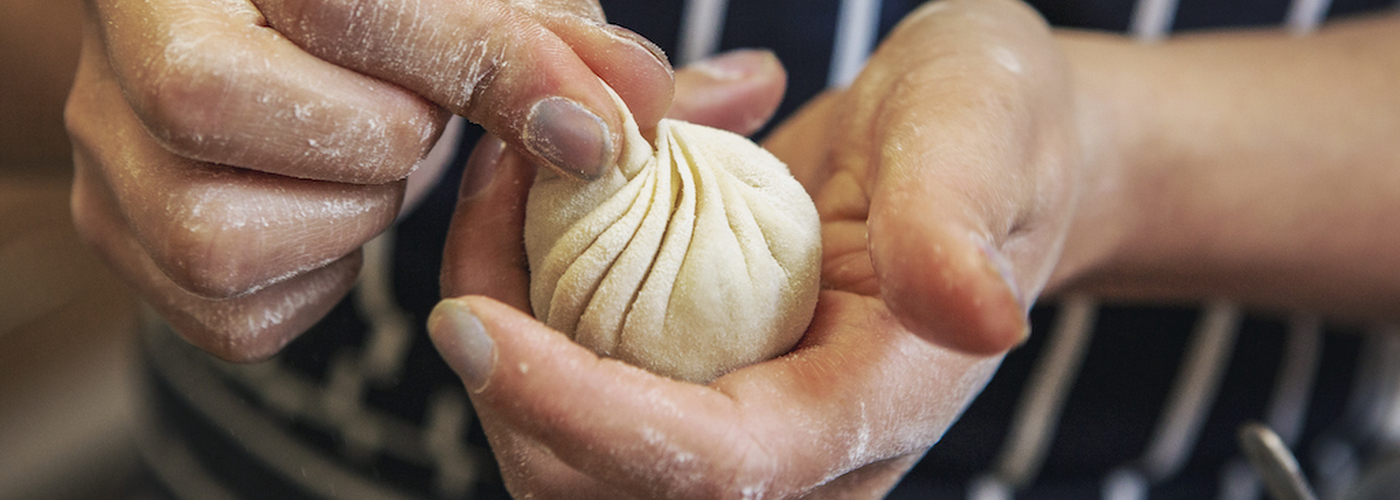Clare Courtney tells us about their new community cookbook
I am addicted to cookbooks. A few years ago, it got a bit out of hand and I was forced to admit that I had a problem. I cut down, but it wasn’t enough. In the end, I had to delete my Amazon wish list, enlist the support of my friends and family, and go cold turkey. Two weeks ago, exactly 635 days and two hours since I had bought my last one, I relapsed.
There is not just one homogenous migrant woman. They are not just ‘other’. They’re so complex
But it was worth it, because Heart and Parcel's is unlike any other recipe book I have owned. Not simply a book of recipes, but stories of community, friendship, sharing, surviving and breaking down barriers. The book contains 29 home-cooked recipes from Syria to Greece, Pakistan, to Bangladesh, Ethiopia to Poland, Iraq to Gambia, Morocco to Tibet. It is a celebration of the work of Heart & Parcel, a Manchester-born social project with its arms around the world. A project that has been life affirming for many involved, life changing for others.
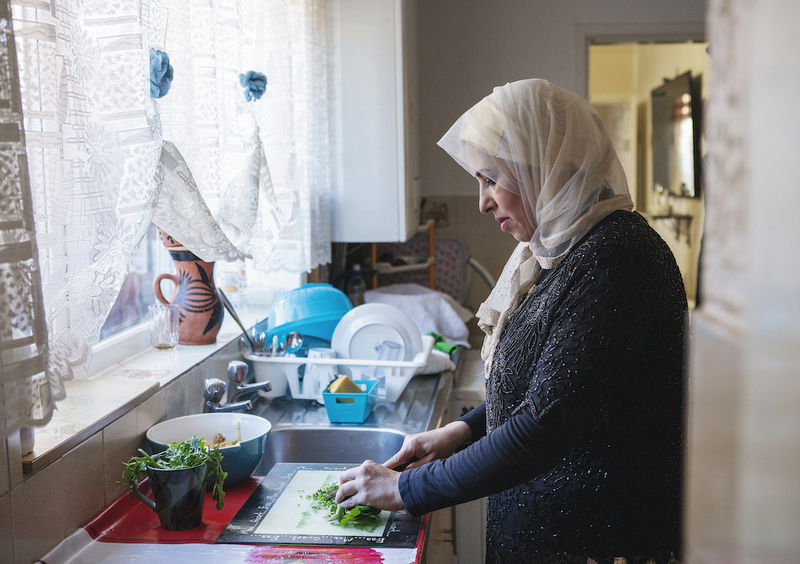
Heart & Parcel's English-language/dumpling-making classes started in 2015 as a result of founders Clare Courtney and Karolina Koścień’s frustration with funding cuts and subsequent lack of adequate provision in the world of ESOL (government run English language classes).
“We had no idea what we were doing at first,” laughs Clare. But they knew they wanted to help and had some of the skills and experience required; Karolina being a migrant woman herself as well as a social worker, interpreter and translator, and Clare as an English language professional with a Masters in educational policy. Both surrounded by the people whose lives were being affected by the cuts.
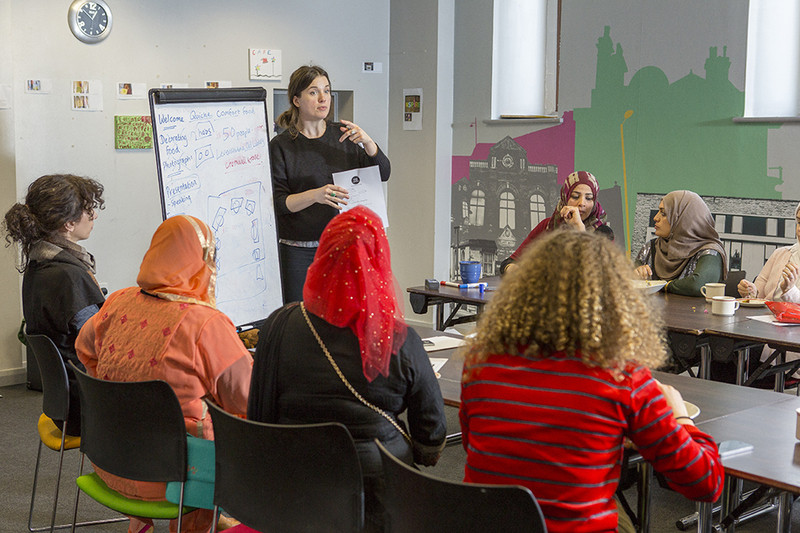
With the support of other local food traders like GRUB and Mei Mei’s Street Cart, and the community in Greater Manchester, particularly Levenshulme, they set about learning how to be market traders, run supper clubs, apply for funding, register as a charity, and in the end, create and self-publish a beautiful cook book that everyone should own.
They have done all this while holding down their day jobs. “It’s really beneficial having our other jobs because we are gaining skills where there are more resources, in academia and other bigger charities, that feed back into H&P,” says Clare.
Karolina has also done courses on welfare and the benefits system so she can offer genuine advice when questions come up in the middle of cooking sessions. Their tireless dedication and resourcefulness is humbling.
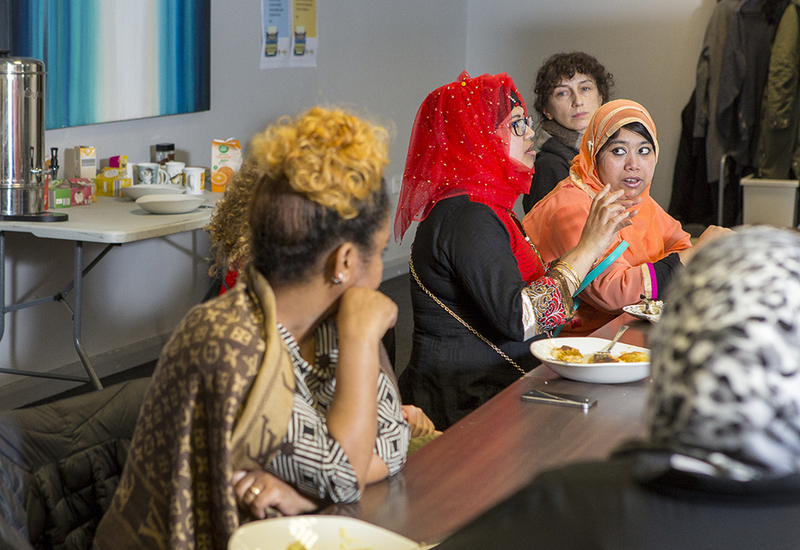
The migrant women they work with (from all kinds of backgrounds) get a lot out of the classes. “It’s not just about the English language or even the food itself, but so much more: wellbeing, nutrition, it’s very therapeutic.”
The learning experience extends to the volunteers and the Heart & Parcel team too. Clare tells me she has learned many different ways to prepare vegetables.
“I met these Ethiopian women and they peel garlic so differently. A whole bowl is done within five minutes. I was like, How are you doing that? There are so many different, often better, ways to do things.”
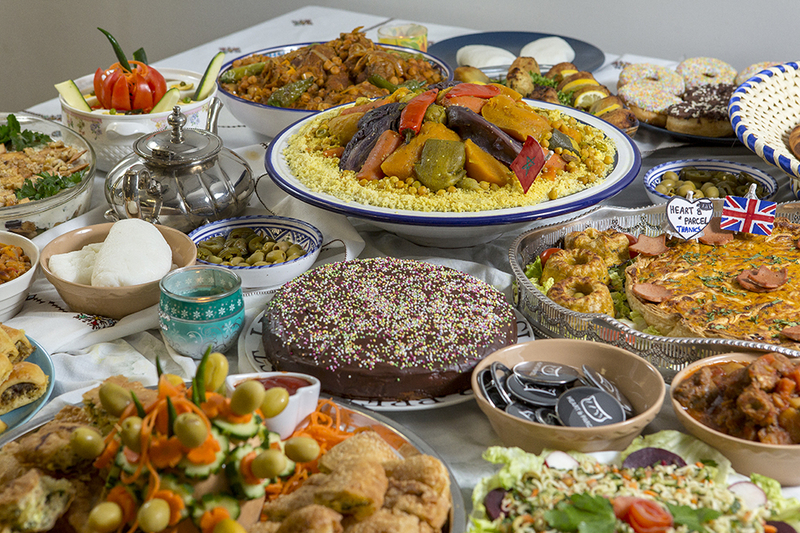
The cookbook came about after women attending some of their earlier courses requested more writing practise. A ten-week, lottery-funded project Cook Eat Write Share was launched with the aim of covering all types of writing, literacy and numeracy.
Clare says she imagined a zine or a leaflet showcasing the resulting stories and recipes but once they’d collected everything, they realised how special they were. They assembled a team including local photographer Bec Lupton and designers Jimmy and Dom from Minute Works, to create a book worthy of its remarkable contents.
“One of our journalist friends, Lucy Lovell, kindly transcribed all the stories for us. One day she asked if we had thought about recipe testing? We hadn’t. So then we had eight different people testing the recipes.”
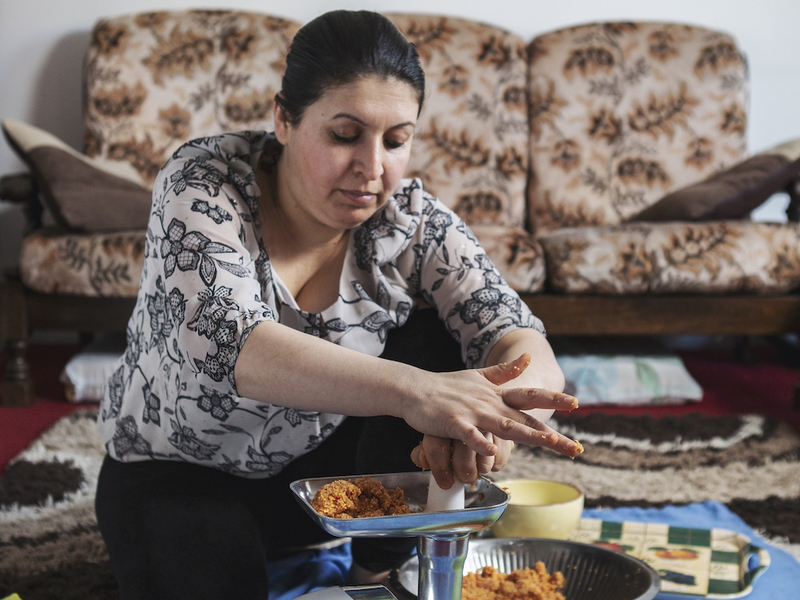
The whole experience reaffirmed Clare’s understanding that people are multifaceted. “Just because you were born in one country, it doesn’t necessarily mean that you embody the values, belief or culture of that country. Many of the women have very long stories which have influenced their cooking, thoughts, and lives.
“They may be Bangladeshi but lived in Tenerife for a while, moved to Italy to get some visas. Their kids, who went to school there, speak Italian, Spanish, Bangla, English… They’ve got all of these different influences around them. There is not just one homogenous migrant woman. They are not just ‘other’. They’re so complex.”
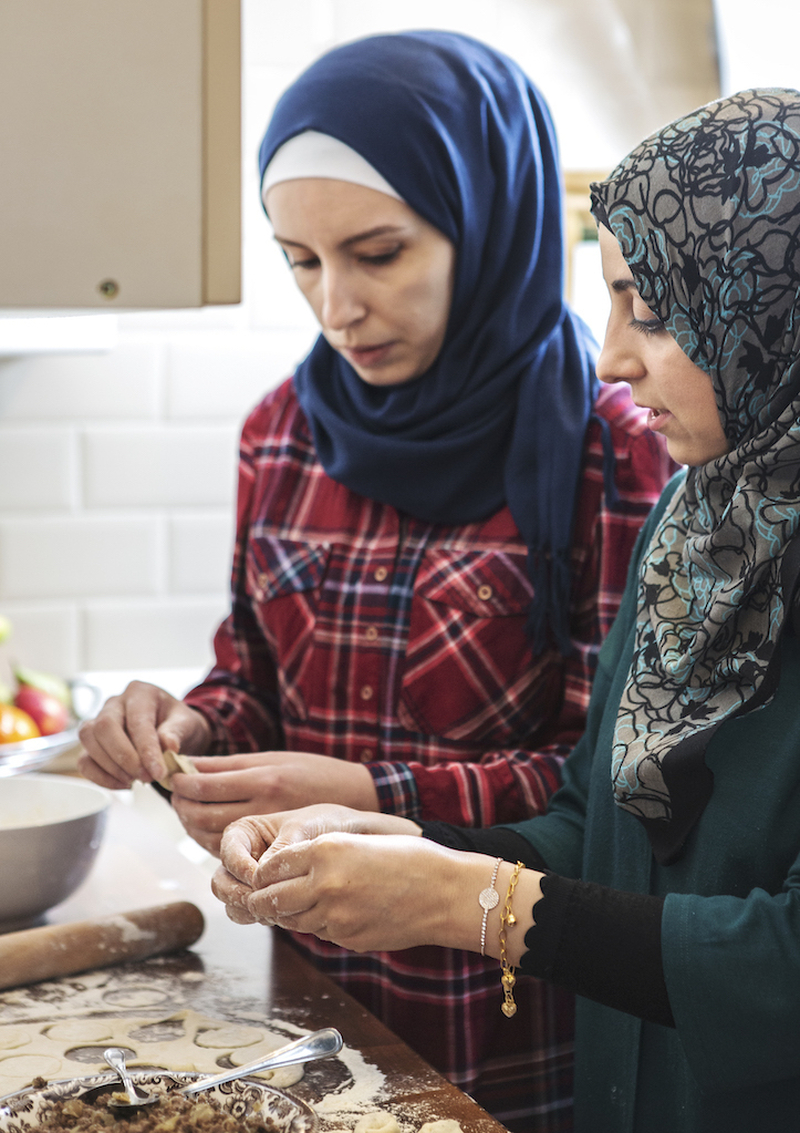
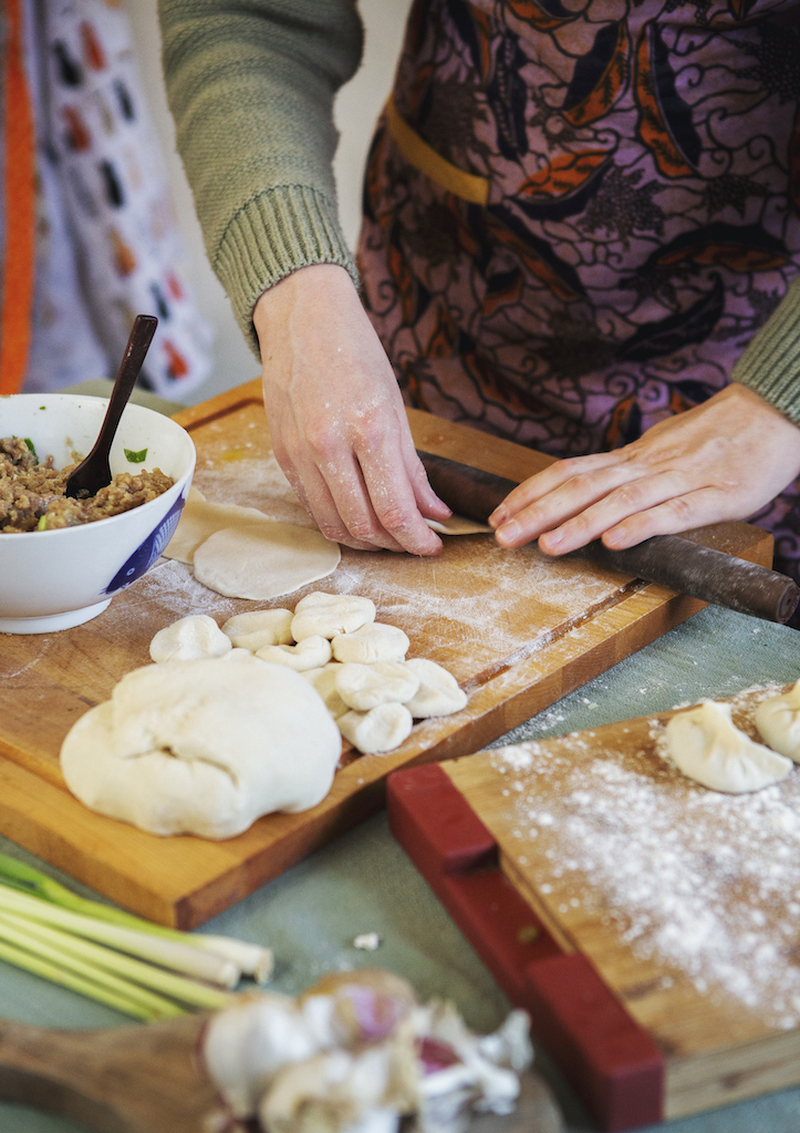
She questions the stereotype of particularly muslim women being ‘very quiet, passive, pious’. While she agrees they can be all of those things, in her experience they are also funny, cheeky and sometimes outrageous.
She is astounded by their bravery: “they go to the classes knowing that they may not understand anything for the whole three hours. That is incredible.”
Clare has her own experience of feeling misunderstood and labelled. Born in the Middle East, she grew up in Hong Kong, attending an international school and visiting England in summer.
She says she only realised how ‘different’ she was when at eleven she moved to the UK to start high school and was introduced, inaccurately, as the student from Singapore. “It just showed the total lack of understanding,” she tells me, “I think that’s stayed with me in always feeling a little bit out of place.”
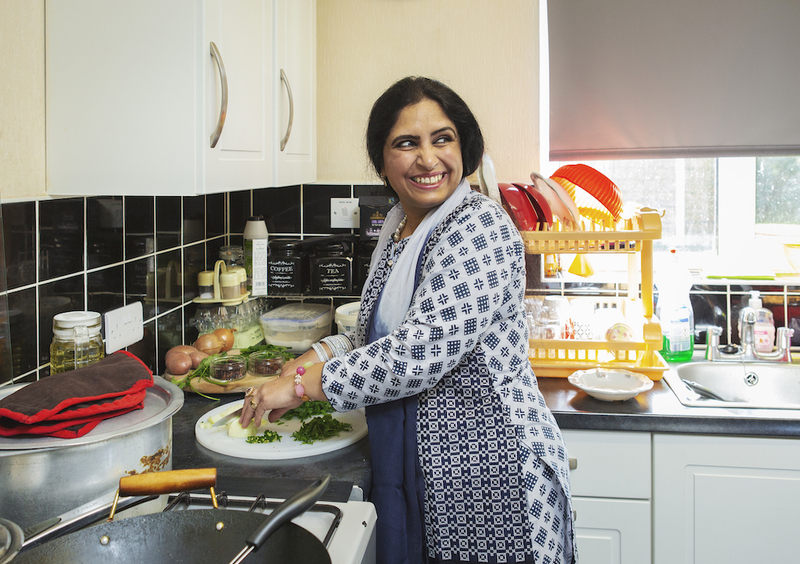
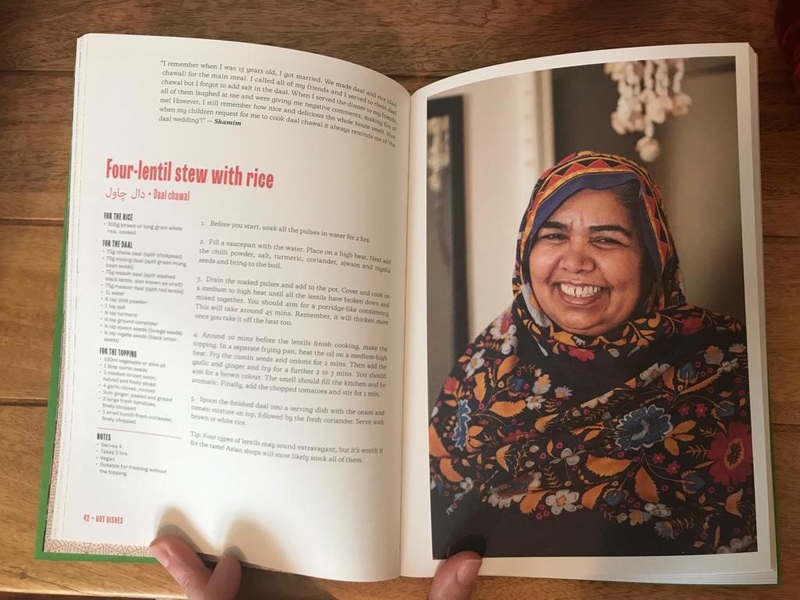
Perhaps this is why she was insistent that the recipe titles shouldn’t indicate where the women were from. “It’s just Mushroom Kibbeh or perhaps Ramadan Lentil Soup or Baked Fish Parcels. We didn’t want to have that label placed on them.”
Clare wanted to challenge our ‘desperate need to categorise’ preferring instead ‘to highlight the fluidity of identity.’ Accompanying each recipe is a story which gives more insight into the women’s lives. These are as important as the recipes, if not more so.
With so much to love about the book, I was curious about Clare’s favourite recipes from it. “I absolutely love Rizwana’s Chapatis. I’ve never worked with wholemeal flour before and they’re so easy to make. If you do it right, when you put it in the pan it puffs up. It’s so satisfying. I can’t stop eating it.
“And then there’s Dimitra’s Walnut Cake. I used to get my hair cut with Dimitra, so I’d go round and she’d have a coffee waiting for me and a slice of that cake. The smell of cloves reminds me of her house.”
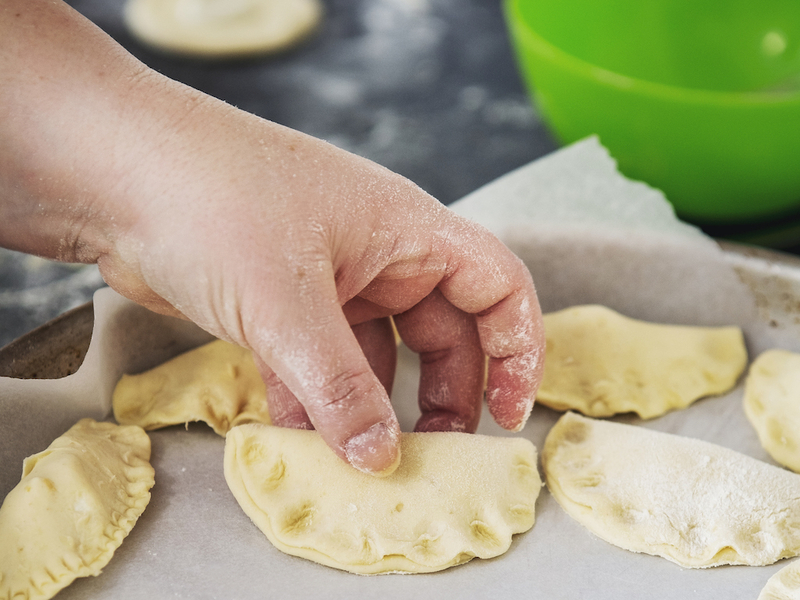
Clare and Karolina’s joint favourite cookbook is Mamushka by Olia Hercules which showcases Georgian food, with a smattering of Ukrainian and central European influences. Taking inspiration from this celebration of an underrated cuisine and its beautiful photographs, Clare wants people to feel inspired by the Heart & Parcel Cookbook.
“For us it wasn’t just about cooking the recipes exactly as they are, you should be allowed to play. Our favourite cookbooks inspire us to use those flavours, spices or herbs.
“The recipes are a testament to how much amazing food there is on all of our doorsteps. If you go into any community around Manchester or in the UK your neighbours will be cooking some amazing food which you might never see because it’s still quite invisible.
“'This book goes some way to recognising how important that is. People should buy the book if they are interested in good home cooked food and celebrating the migrant communities and food in Britain.”
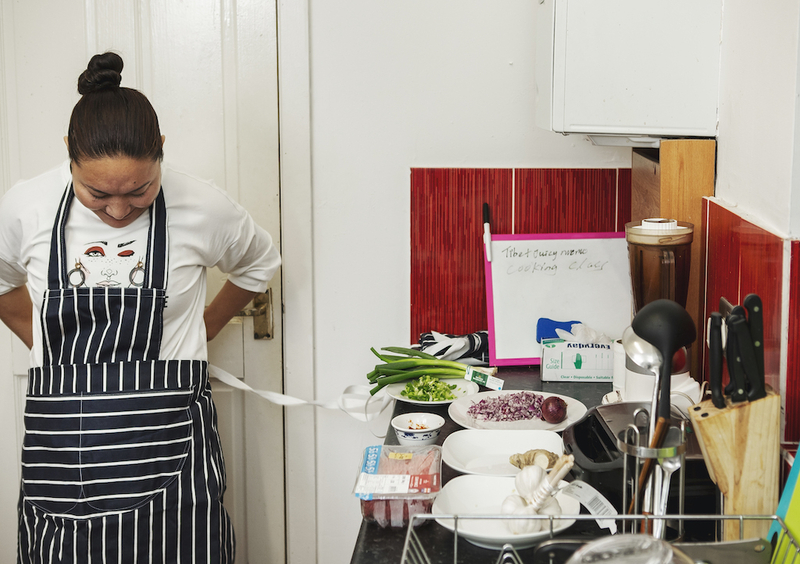
I couldn’t let Clare go without getting some recommendations for great places to eat here in Manchester.
“For weekend Dim Sum: Glamorous Restaurant on the top floor of Wing Yip, but arrive at 11:30 on the dot because it gets busy. It’s the authentic Hong Kong experience, I took my parents there last week and they said it was like being back there. Just across the road is Ca Phe Viet for amazing Vietnamese coffee, banh mi and pho.
“For Ethiopian food, Habesha at the bottom of Canal street, Levenshulme Bakery for really good, really fresh Turkish kebabs and for Nepalese, Himalayas restaurant in Levenshulme. Our favourite restaurants for Polish food are Gopher Station on Princess Road and Staropolska on Ayres Rd near Whalley Range.”
Ever evolving, ever fluid, the Heart & Parcel team plan to create graded English language learning materials using the cookbook and in their 'Tastes of Life' podcast, which sees Clare visit a different woman’s home each episode to cook with them and chat about their lives.
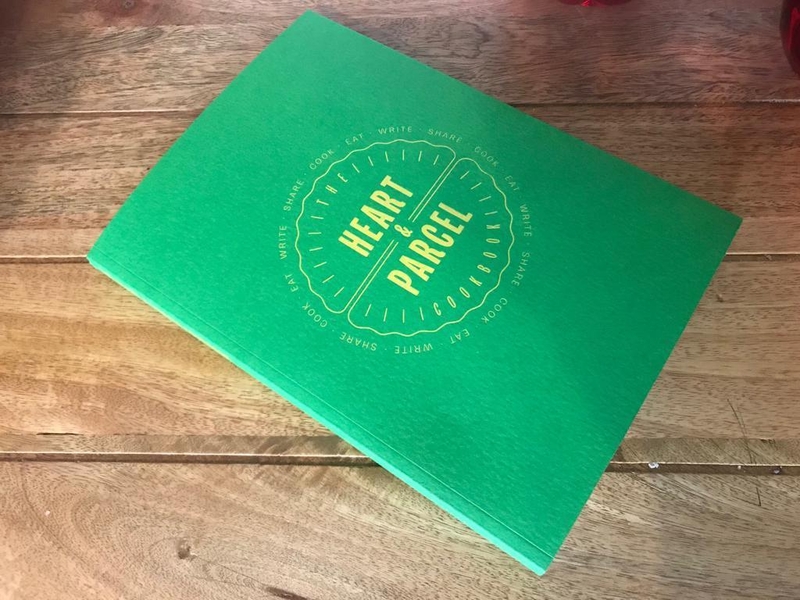
H&P are part of Manchester International festival this year, working with The School of Integration to provide free cooking (and eating) classes. Over eighteen days there is a different woman from H&P every day cooking a different dish at The Manchester Art Gallery.
You can buy the cookbook and see a full list of stockists, which include Manchester Art Gallery and Trove, here.
Interested in getting involved as a volunteer or supporter? Follow Heart & Parcel on Twitter, Facebook or Instagram.





